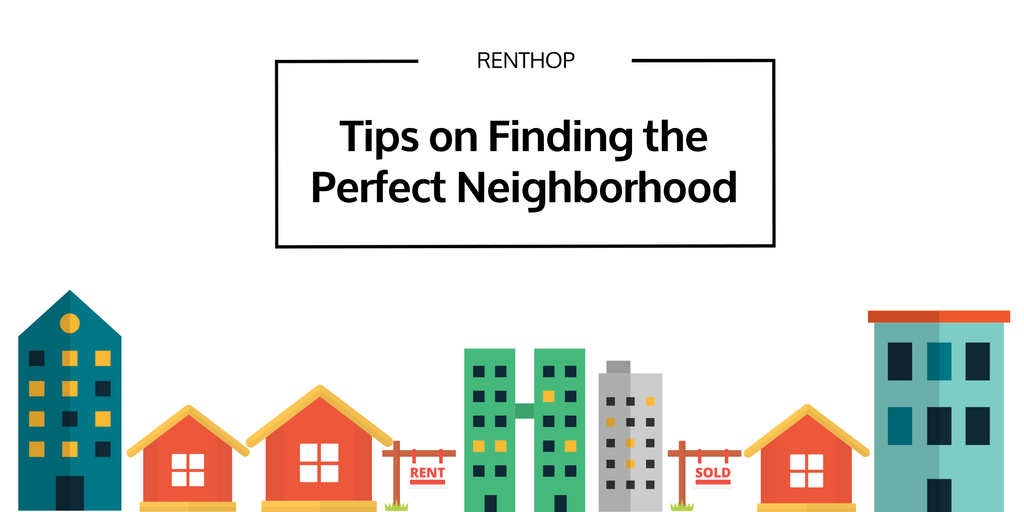
Whether you’re a lifetime renter or someone moving out for the first time, finding a new apartment is a very exciting process. However, it can also be somewhat tedious. This is the place you will be living for the foreseeable future, so you need to make sure it is exactly what you want. However, you can’t only consider the unit you will be living in. You must look outside the apartment and out in the neighborhood, and ask yourself what’s important when picking a neighborhood. The neighborhood can have a large impact on your quality of life in your new apartment. This article will feature some tips to ensure that you find the perfect neighborhood to live in.
1. Figure Out What You Want To Spend
Before you even begin the apartment hunt, you need to figure out what kind of budget you have. Sure, we would all love to live in a gorgeous apartment in the nicest neighborhood with the best people, amenities, and atmosphere. However, all of that good stuff would likely come with a massive rent. It’s generally recommended that you spent no more than 33% of your take-home pay on rent. Once you calculate how much you can spend on an apartment, start looking in neighborhoods that fit your budget.
2. Consider Transportation/Work Commute
Now that budget is taken care of, it is a good idea to look at location. In fact, for many people, location is the most important aspect when choosing a place to rent. You might have found the perfect apartment and the perfect neighborhood, only to find it is an hour away from your office. That is why location is so important. No one wants to have long drives before and after work, in addition to working a long day. Also, if you don’t drive, you want to make sure there is reliable transportation in the area to get you from point A to point B.
3. Discover the “Character”
Sure, the price and location of a neighborhood is important, but it’s the people and character that makes a neighborhood great. However, every individual has a different idea of what characteristics are desirable in a neighborhood, so it is completely subjective. Consider researching various characteristics like public events, demographics, how people interact with each other, etc. For example, a young professional who likes to party on the weekend likely want a different “character” in their neighborhood than a family looking to raise children.
4. Make Sure It Is Safe
Home is somewhere where you feel safe and secure. Your apartment should have sufficient locks, clear and bright entrances, and a security system of some kind in place. In addition to that, living in a safe neighborhood is ideal too. Unfortunately, sometimes rough neighborhoods are the only places some people can afford to live. If this is the situation you find yourself in, make sure to be aware of your surroundings at all times and stay as safe as possible. Before you agree to live in a neighborhood, visit it during the day and at night. You would be surprised how much a neighborhood can change at different times of the day.
There are also numerous online resources to find out crime prevalence and safety in various neighborhoods, and that data should definitely be looked at. Even if the neighborhood you are living in is generally safe, sometimes only a block or two can separate a good neighborhood from a bad one, so get to know the areas around your neighborhood as well.
5. Think About Geography
While location is something people may think about, many don’t think about the actual topography of the neighborhood. First of all, if the neighborhood is in the hills or by the water and offers great views, you will pay for that privilege. Also, some neighborhoods are more susceptible to natural disasters such as flooding, fires, earthquakes, and hurricanes. While many don’t like to worry or think about the worst-case scenario, it’s something that should always be considered before agreeing to live somewhere. The land under your neighborhood of choice can be a huge factor in your overall experience, and should be considered by everyone.
6. Make Sure It Has “What You Want”
You are the one living here; make sure it has what you want. That can mean a range of things from making sure it has amenities you want, to making sure it doesn’t have things you don’t. This will range from person to person based on individual tastes, goals, and such. You may want to be close to good schools and parks, or might want to live close to great shopping and restaurants. Also, on the other hand, you may not want to live in the same neighborhood as a cemetery or a lot of urban blight. Make a list of amenities that are important to you, and try and check off as many as you can in a neighborhood before you move there.




